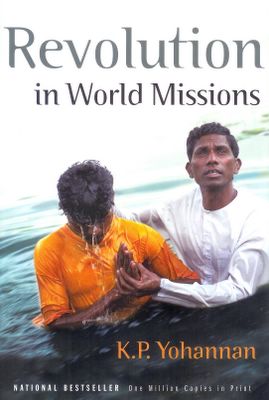 The Dream Giver
The Dream Giver by Bruce Wilkinson with David & Heather Kopp (Multnomah, 2003. 157 pg.)
Enter into the world of Ordinary, who is a Nobody living in the Land of Familiar. Each day he goes to his Usual Job, each evening he eats almost the same meal as every other night, after which he sits down in his recliner to be mesmerized by a box in his living room.
One day, however, Ordinary awakes to discover that he has been visited during the night by the Dream Giver, who has left him with a dream for the future and a feather on his windowsill. Ordinary, after being spurred on by his father, decides to forsake the Land of Familiar and venture out to “do” his dream.
Along the way, Ordinary encounters opposition and discouragement, many times wishing that he had never left home to begin with. Ordinary’s journey takes him through the bully-filled BorderLand, across the desolate WasteLand, and, after taking a brief but beneficial respite in the Sanctuary of cleansing and consecration, through the ominous final stretch into the Land of Promise, where he encounters ferocious giants, such as fierce giant Moneyless, who give him the struggle of his life.
Has this #1 New York Times bestselling author resorted to penning fairy tales? Not quite. In this book, Bruce Wilkinson tries to convince us that every person, no matter how much of a Nobody he or she is, has a God-given dream hidden in some corner of their heart which, when accomplished, will bring tremendous joy to their life.
“The better you understand the journey to your Dream and what God is doing in your life, the less likely you are to abandon your Dream”
To accomplish this goal, Dr. Wilkinson reaches back into the great classics of Christendom, from John Bunyan’s Pilgrim’s Progress to C.S. Lewis’s Chronicles of Narnia, to snatch a literary device – the parable – which has proven itself incredibly effective time and time again. In fact, the device is used so effectively in this work that one can be left wondering why it has not been used more frequently in the literary works of more recent years.
After devoting the first seven chapters to the parable, Dr. Wilkinson takes off his storyteller hat and introduces himself as a personal dream coach, ready to equip the reader for accomplishing his or her dream. The final seven chapters of the book mirror the first seven, as Dr. Wilkinson takes the reader on a personal tour of each stage of the journey to one’s dream.
While honestly labeled as being of the “Personal Growth” genre, this work seems rather autobiographical, more so than any of Dr. Wilkinson’s major books thus far. In his first #1 New York Times bestseller, The Prayer of Jabez, we are given glimpses of how he is ushered into a life of increased blessedness and opportunity. Secrets of the Vine, on the other hand, seems more pedantic in nature, as does Dr. Wilkinson’s second #1 New York Times bestseller, A Life God Rewards, which is largely an argument that good deeds will indeed be rewarded. But in spite of the copyright page’s insistence that the opening parable is fictitious, anyone who knows much about Dr. Wilkinson might have trouble believing that the writer is not, perhaps even subconsciously, using the parable to describe the birth and ongoing fulfillment of his own vision – the path of which may not be as universal as he believes. But even if this is true, it does not negate the appeal of a highly successful person giving instructions on how to be successful.
In this work, Dr. Wilkinson retains those essential qualities which have, in part, made him such a successful writer. His sentences flow habitually with ease. He finds interesting ways to say even the most ordinary things. While his diction seems impeccable, His Continual Use Of Capitalized Words May Leave The Reader Thinking Entirely In Capital Letters After Putting Down The Book. It is true, as one reviewer points out, that his writing “veers toward [being] childish” in some passages. But the pages of his book exude an unmistakable warmness, which flows, without doubt, from his genuine care for the state of humanity, one person at a time.
His genuine compassion is evidenced by the material he introduces in the latter part of the book, where he begins to describe his own journey of faith and the current progress of his own dream. As one reviewer notes, one fulfilled dream “serves as a launching pad for a bigger dream.” That is exactly what has happened in Wilkinson’s life recently. He tells how, at the height of the ministry which he and his wife Darlene had started out of their basement, he is senses the call of God to forsakes everything, and then move his family to Africa to conquer the giants of misery, starvation, and death permeating the continent, forsaking the Land of Familiar to bring his Dream to fruition.
This not only adds credibility to his words, but it also helps him to accomplish his personal vision of bringing relief to Africa, as the many people who will read his book are bound to be stirred by the images he shares and the significant progress he has been making in a place where “eight thousand people . . . die of AIDS” each day. He leaves us with an image of an African boy who was found dead of starvation and exposure on the streets, and shares his belief that this is a consequence of someone’s neglecting to live out his or her dream.
If you have a dream (and Dr. Wilkinson insists that everyone does) this book is for you. After reading such a work, it should be difficult for any of us, no matter how much of an Ordinary we are, to refrain from living out our dream to perfection.





